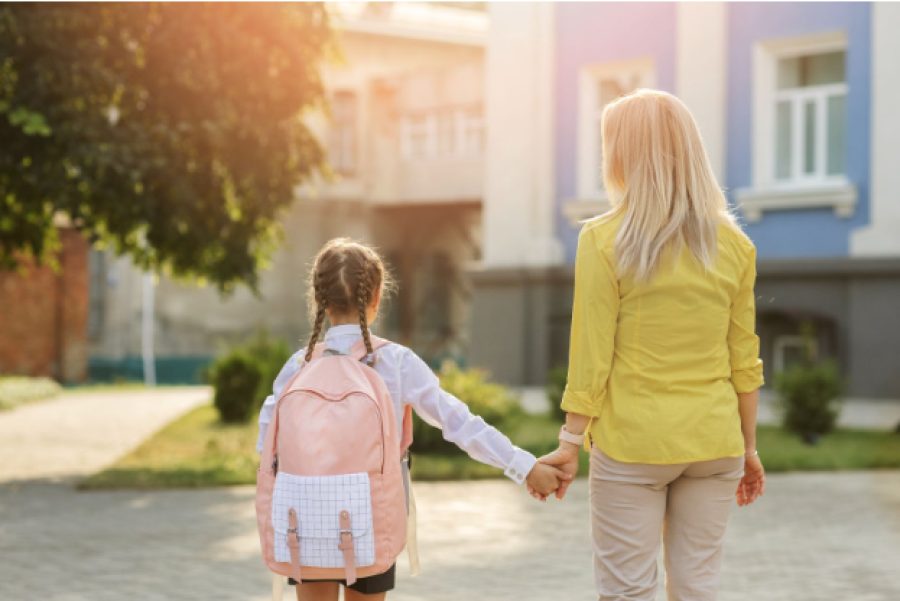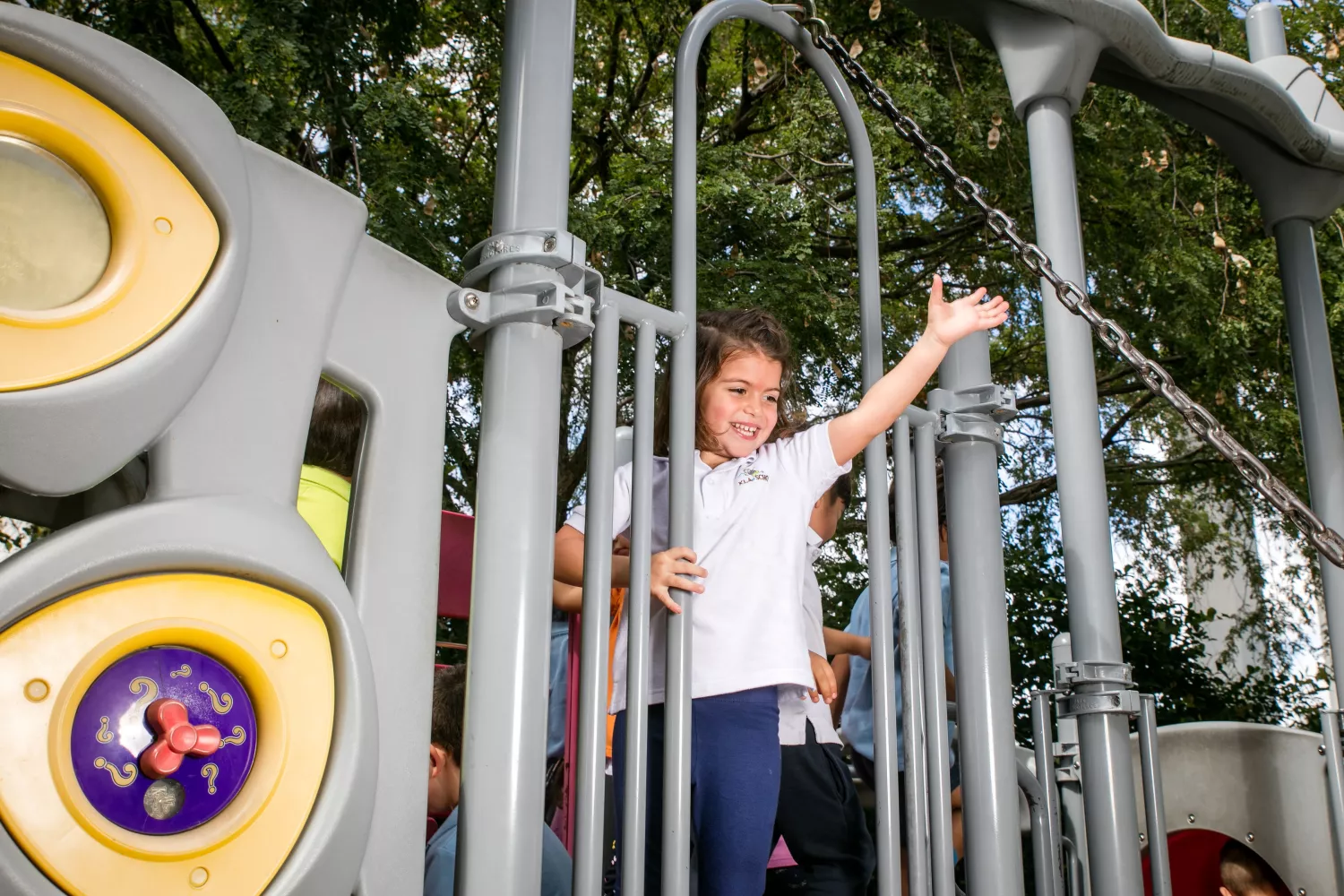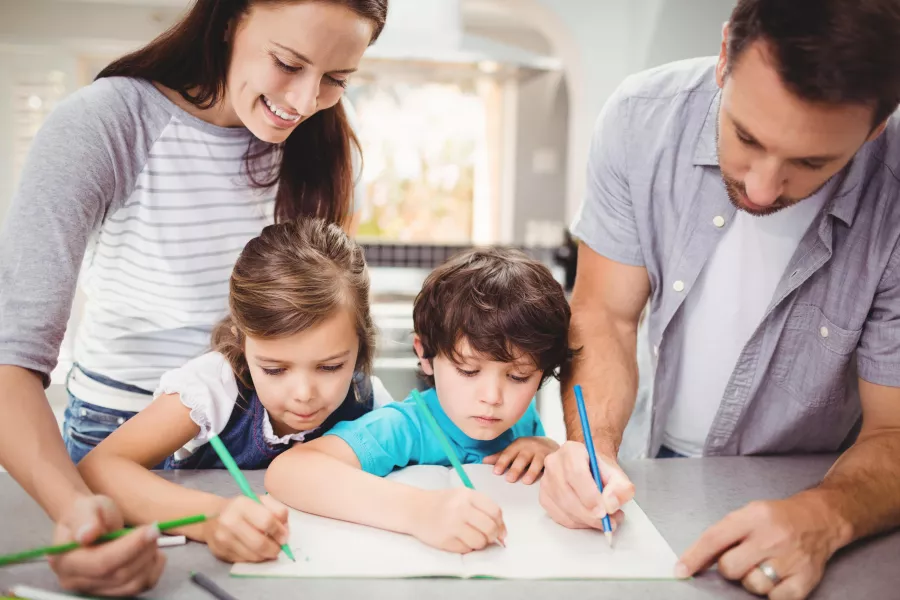When Parents and Teachers Work as One: Inside the Reggio Emilia Philosophy
Topics: Child Development
Age Range: Preschool
The earliest years of a child’s education are built on strong relationships between the child, their environment, and the adults who guide them. In the Reggio Emilia approach to early childhood education, parent involvement is not an option but a vital and foundational principle.
At KLA Schools, which follows the Reggio Emilia philosophy, we view parents as a child’s first and most influential teachers. You are your child’s constant source of guidance, modeling, and love. When families and educators work together, children thrive in an environment characterized by trust, respect, and shared purpose.
Parent participation enriches classroom learning, strengthens community connections, and helps each child develop a sense of identity and curiosity. Understanding how the Reggio Emilia philosophy encourages meaningful family involvement can help you see your child’s education as a collaborative, ongoing partnership.
The Role of Parents in the Reggio Emilia Philosophy
The Reggio Emilia philosophy originated in Northern Italy after World War II, guided by educator Loris Malaguzzi. It is based on the belief that children are capable, curious, and active participants in their learning. Within this approach, parents are considered essential partners in the educational process, not passive observers.
Rather than separating “home” and “school,” Reggio-inspired educators view them as interconnected environments where children learn and express themselves. Parents bring invaluable knowledge about their child’s personality, interests, and cultural background. Teachers then use this insight to create experiences that honor each child’s individuality while fostering growth across all developmental domains.
This philosophy also reflects a deep respect for the family as a child’s first community. When teachers and parents collaborate, they model cooperation and communication skills that children internalize through observation and experience.
Collaboration with Teachers
At a Reggio Emilia preschool, collaboration between teachers, parents, and children is central to the learning process. Education is viewed as a shared journey, with everyone contributing to the child’s growth and discovery.
This collaboration takes many forms. Teachers invite parents to share observations about their child’s emerging interests, strengths, and challenges. They also encourage parents to participate in class projects, celebrations, or reflective discussions. These exchanges strengthen the bridge between home and school, ensuring that children experience consistency across both environments.
When a preschool emphasizes open collaboration, children feel supported by a united team of caring adults. They understand that learning is not confined to a classroom but continues everywhere, at home, in nature, and within their community.
Moreover, teachers in Reggio Emilia schools document children’s learning through photos, notes, and displays. This documentation invites observers to witness the learning process firsthand and engage in encouraging dialogue about their child’s development. Parents gain insight into how their child interacts, problem-solves, and expresses creativity, deepening mutual understanding between family and school.
Two-Way Communication Strengthens Connection
Ongoing communication between teachers and parents ensures that education remains a dynamic, evolving process. In Reggio Emilia environments, information flows both ways: teachers share updates and insights, while parents contribute observations from home.
At KLA Schools, teachers view communication as a partnership built on respect and transparency. Families receive frequent updates through conferences, emails, classroom journals, and digital tools that document daily moments of learning. For example, in our preschools, we utilize a secure mobile app to send photos, reports, and notes, allowing parents to stay connected to their child’s experiences throughout the day.
Two-way communication helps teachers tailor learning experiences to each child’s interests and needs. When a parent shares that their child has become fascinated with insects, for example, teachers might create a class exploration about habitats or observation. This responsiveness allows children to see that their ideas and passions are valued both at home and at school.
Parents are also encouraged to ask questions, share feedback, and participate in reflective conversations with teachers. This kind of open dialogue ensures that the child’s learning remains holistic, consistent, and deeply personal.
Family Participation in School Events and Community Projects
Reggio Emilia schools see education as extending beyond classroom walls. The community itself becomes part of the child’s learning landscape. Family involvement in school events helps nurture this sense of connection and belonging.
Parents are invited to participate in classroom activities, community celebrations, and collaborative projects. These moments allow families to share their cultures, talents, and traditions, enriching the classroom environment with diverse perspectives.
Many Reggio Emilia-inspired preschools, including KLA Schools, host parent nights, exhibitions of children’s work, and family workshops. These events create opportunities for families to interact with teachers, observe children’s creative processes, and exchange ideas about learning. When parents and educators come together in these ways, children witness collaboration and gain pride in seeing their family valued as part of the school community.
Beyond events, families often contribute to long-term school projects. For example, parents might help children plant a community garden, build recycled art sculptures, or participate in neighborhood cleanup efforts. These collaborative experiences help children see that learning connects directly to their world and that everyone plays a role in making it better.
Consistency Between Home and School
Children feel secure when they experience similar expectations, values, and approaches at home and school. Reggio Emilia educators emphasize the importance of consistency in communication and caregiving practices.
Through collaboration and two-way dialogue, teachers and parents can align approaches to social-emotional learning, problem-solving, and conflict resolution. When families and teachers model similar responses to challenges using calm communication, empathy, and reflection, children develop stronger emotional regulation and trust.
Consistency also benefits cognitive development. When parents and teachers reinforce similar themes or projects, children deepen their understanding through repetition and connection. For example, if the class is studying weather patterns, parents might explore related activities at home, such as measuring rainfall or observing cloud shapes. These shared foster a more profound understanding, heightened tension, and curiosity.
The Impact of Parent Involvement on Child Development
Research consistently shows that active parent involvement enhances a child’s academic and emotional development. In Reggio Emilia settings, this involvement goes beyond volunteer hours; it’s about mutual learning and shared reflection.
When children see their parents engaged in their education, they feel valued and supported. They also develop stronger communication skills, a greater sense of self-esteem, and a more profound sense of belonging. Parents benefit too: they gain insight into their child’s abilities and feel more connected to the educational journey.
This mutual engagement builds a strong foundation for lifelong learning. Children who experience supportive relationships at home tend to view education as a collaborative, joyful process at school.

Building Strong Communities Through Shared Learning
The Reggio Emilia philosophy views education as a collective responsibility. Each child’s success reflects the strength of the relationships surrounding them, including those with teachers, parents, peers, and community members.
At KLA Schools, parent involvement is an integral part of this philosophy. Through collaboration, open communication, and shared experiences, families become active contributors to their child’s growth. The connections built in these early years extend beyond preschool, shaping confident, compassionate learners who understand that change occurs everywhere.
Parent involvement in the Reggio Emilia approach is not just participation; it is a partnership. When educators and families unite around a shared vision of discovery, curiosity, and respect, children benefit in every aspect of development. Together, we build communities where every child can flourish.
Get in touch with us today to learn more about our Reggio Emilia–inspired programs and how family involvement helps every child grow, learn, and thrive at KLA Schools.

